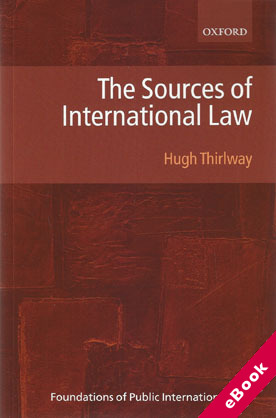
The device(s) you use to access the eBook content must be authorized with an Adobe ID before you download the product otherwise it will fail to register correctly.
For further information see https://www.wildy.com/ebook-formats
Once the order is confirmed an automated e-mail will be sent to you to allow you to download the eBook.
All eBooks are supplied firm sale and cannot be returned. If you believe there is a fault with your eBook then contact us on ebooks@wildy.com and we will help in resolving the issue. This does not affect your statutory rights.
The question of what is, and what is not, part of international law is fundamental in shaping its current form and its development. Traditionally, treaties between states and state practice were seen as the primary means with which to create international law.
However, the definition of what the sources of international law are, and how they operate, has been questioned in significant ways. Particularly this has been seen in the more recent developments in the notion of customary international law, which stands alongside international treaties and instruments as a key foundation upon which international law is built.
This book provides a key inquiry into all the recognised, or asserted, sources of international law. It investigates the impact of ethical principles on the creation of international law; whether 'soft law' norms come into being through the same sources as binding international law; and whether jus cogens norms, and those involving rights and obligations erga omnes have a unique place in the creation of international legal norms.
It studies the notion of 'general principles of international law' within international law's sub-disciplines, and the evolving relationship between treaty-based law and customary international law. Re-examining the traditional model, it investigates the increasing role of international jurisprudence, and looks at the nature of international organisations and non-state actors as potential new sources of international law.
The book provides a perfect introduction to the law of sources, as well as innovative perspectives on new developments, making it essential reading for anyone studying or working in international law.